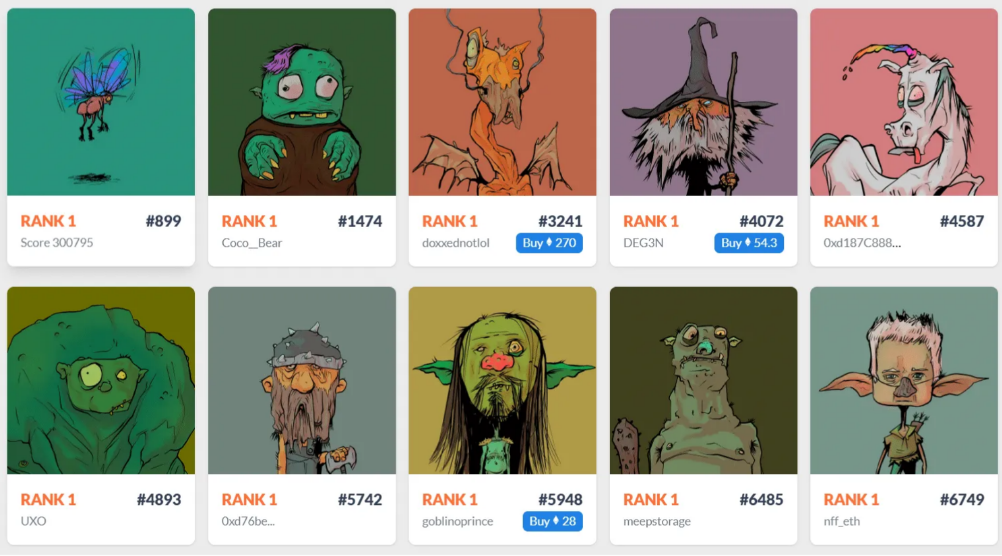NFTs Becoming the SEC’s Newest Crypto Target

The Securities and Exchange Commission (SEC) is finally taking a harder look at NFTs.
In a long-telegraphed move, the SEC has begun sending out demands for information about projects that use nonfungible tokens (NFTs) to fractionalize everything from fine art to real estate to other, more valuable NFTs, Bloomberg reported.
NFTs are a type of cryptocurrency that can hold a media file like video, images or data, which cannot be changed once minted. Since they are recorded onto a blockchain, they also provide proof of provenance.
Related: PYMNTS NFT Series: What Are NFTs and Why Are They Cryptos Newest Next Big Thing?
Using cryptocurrency to sell off fractions of a more valuable object has been a topic of interest and investment in the crypto industry for years far longer than NFTs were used as anything but obscure game tokens such as CryptoKitties. The pitch was and is that they would allow people to buy into more expensive investments that were generally beyond the means of average investors.
Along with fractionalized commercial real estate a hotel was the first to try it, back in 2018 and art, using cryptocurrency tokens to sell actual shares of stock has been mooted in recent years.
The agencys push is an obvious one in the wake of regulatory actions beginning in 2017 against initial coin offerings (ICOs), in which cryptocurrency developers sold off tokens to fund the development of blockchain projects the digital assets would be used on. ICOs have all but disappeared from the crypto industry.
See also: Gensler: SEC Is Coming for Crypto Exchanges
Most recently, the agency settled $100 million charges that crypto exchange BlockFi violated securities regulations by failing to register interest-bearing investor accounts used to fund lending services, signaling another ratcheting up of its get-tough approach.
Read more: SECs New Top Cop: No Free Pass For Unregistered Crypto Lenders
Crypto Mom Says Beware
Back in March 2021, SEC Commissioner Hester Peirce, known as Crypto Mom within the cryptocurrency industry for her early support, warned that some NFTs likely fell under the agencys purview.
Peirce said that because NFTs are nonfungible meaning one is unlike any other they are less likely to be securities than other cryptocurrencies.
But, she added, people are being very creative in the types of NFTs theyre putting out there.
Saying that the definition of security can be pretty broad, she told developers to be careful that youre not creating something thats an investment product.
Adding that some NFT projects raise the same kinds of questions that ICOs have raised, Peirce also warned investors to be careful and ask questions before investing in these products.
Its Been Done Before
There have been some high-profile examples of fractionalizing NFTs.
Most notably, the $6.9 million winning bid at Christies for the NFT collage Everydays: The First 5,000 Days was an NFT collector known as MetaKovan later revealed to be blockchain advocate and angel investor Vignesh Sundaresan. He bought the work on behalf of an NFT fund, Metapurse.
In January 2021 two months earlier Metapurse fractionalized and sold another group of artworks by Everydays creator Mike Beeple Winkelmann that it called The Beeple 20 Collection. It created 10 million B.20 tokens, selling 23% of them for about $1.4 million.
This suggests that the interest in Beeples NFTs was not that high before the Christies auction.
A tokenized sale of Everydays many expected has not materialized, so maybe the luster is wearing off an artwork that made its creator No. 3 on the list of sale prices on works by living artists after David Hockney and Jeff Koons. Sales of NFTs dropped 40%, to $2.6 billion, in February.
Another subsegment of NFT securitization is using smart contracts to enforce resale royalties that amount to revenue sharing, a tool popular with artists and other collectable NFT creators who can earn a cut every time their work is sold on secondary markets. Major cryptocurrency exchange FTX said in October that it would not sell NFTs with royalties on its forthcoming NFT exchange as doing so would turn the digital assets into securities, Decrypt reported at the time.
Its worth noting that the tokenized hotel sale in 2018 was the St. Regis Aspen Resort in Colorado, whose owners sold about 25% of the 179-room luxury property for $18 million. Notably, the sale was handled by Templum, an SEC-registered platform for the issuance and secondary trading of alternative assets.
——————————
NEW PYMNTS DATA: ACCOUNT OPENING AND LOAN SERVICING IN THE DIGITAL ENVIRONMENT
About: Forty-two percent of U.S. consumers are more likely to open accounts with FIs that make it easy to auto-share their banking details during sign-up. The PYMNTS study Account Opening And Loan Servicing In The Digital Environment, surveyed 2,300 consumers to examine how FIs can leverage open banking to engage customers and create a better account opening experience.









 Bitcoin
Bitcoin  Ethereum
Ethereum  Tether
Tether  Solana
Solana  USDC
USDC  Lido Staked Ether
Lido Staked Ether  XRP
XRP  Dogecoin
Dogecoin  Toncoin
Toncoin